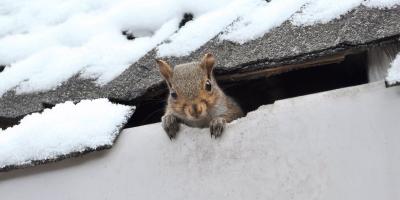When Exactly Does Mosquito Season End?

When you think of mosquitoes you probably always think of summer. After all, that’s when mosquito season is at its worst. What many New Englanders don’t realize, however, is that mosquitoes persist well into the fall, even as temperatures cool and the air dries up. That means the risk of mosquito bites – and the diseases that go along with them – doesn’t disappear right away, either.
That’s why it’s important not to let your guard down until mosquito season truly comes to a close; the typical target for this is late October. Check out the following about mosquito behavior, along with some DIY tips to manage their populations in the meantime.
Mosquito Behavior
Female mosquitoes will continue to lay eggs until the temperature falls below about 50° F. At that point, they’ll lay one last batch, which will wait out the winter and hatch the following spring, starting the whole seasonal cycle anew. In New England, that means it’s usually not until late October before mosquitoes disappear completely, or even early November in the case of a more mild autumn. However, mosquito prevention does get a little easier in the fall, when precipitation and humidity tend to drop.
During this time, there are some DIY methods you can depend on to keep the mosquito populations down.
DIY Mosquito Control Tips
Like many pests, mosquitoes are drawn to standing water, which is less common in the fall than in the spring and summer. Still, one of the best ways to reduce mosquito populations in your yard is to remove standing water wherever you find it.
That means either removing items that can hold water from your property, like old tires, buckets and unused planters, or making sure to clean and discard old water from other fixtures (think: birdbaths).
Inside your home, your first line of offense is a good defense. Make sure screens don’t have rips or holes (and replace those that do), and also be sure not to leave doors (including the garage door) open for too long. It also wouldn’t hurt to look for any areas in your home that may have standing water, such as the kind that can accumulate in the basement.
When temperatures do finally drop below 50°, the over 3,000 different species of mosquitoes on Earth have a number of techniques for getting through the winter to repopulate again the next year.
Some species leave eggs, like those mentioned previously, which enter a state known as diapause – basically a form of hibernation for larvae and pupae. Adult mosquitoes in certain species also overwinter, usually in hollow logs or burrows created by other animals. Either way, when temperatures start climbing the thermometer the following spring, mosquito numbers start creeping up along with it.
Another key element to mosquitoes’ reemergence is precipitation. When rainfall increases, along with rising temperatures, mosquito eggs start to hatch, and the cycle begins again. In New England, that usually happens in late April or early May.
Although scientists and pest control technicians have devised myriad approaches to reducing mosquito populations, global efforts to stop the spread of mosquitos have had little effect. Regardless, your best defense against mosquitoes is only available through a licensed pest control professional with access to proven strategies and solutions. Until temperatures drop below 50°, calling a pro is the best way to keep mosquitoes off your property.
Control the spring mosquitoes by keeping them from laying eggs in the fall. Better yet, let the pros handle it.



